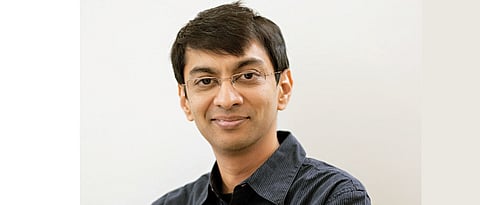

What inspired you to form GenePath diagnostics in 2008?
Three generations of my family are doctors. I am a geneticist and I have trained at the University of Michigan. After my studies, me and my friends from the university started a small venture. The start-up was called ‘Handylab’. Our company made a lab on chip devices. So normally, in a lab, there were a lot of instruments and people. Our goal was to replace the people and equipment with a chip. Our team included various members who specialised in different areas. It took us nine years and we built a product, which could be used to diagnosis group strep disease among pregnant women and the results of the test were shown in less than 45 minutes. Earlier, it took 48 to 72 hours for the test results to come but we reduced the timing. Handylab was very successful and we had about 70 patents. Handylab was later acquired by Becton Dickinson. However, Handylab could not be used in the developing countries. So I moved back to India and started GenePath. Having done this, in India, we realised that it would take a lot of time and money to develop a product. So initially we started with a service product. We are delivering higher end of genetic testing for patients in India. We wanted to understand what the markets need and develop our lab. For the last few years, we have been developing tests for high-end testing.
Can you share a few cases where genetics have helped patients?
We have extended services for pediatric endocrinology, nephrology, hematology, hemato-oncology and expanded solutions in oncology, infectious diseases, neurology, women’s health for domestic and global markets. We have developed so many testings from scratch. Also, unique products that are indigenous. An example from oncology in India, Breast Cancer gene (BRCA) testing is important from different angles. It helps undertsand how the treatment is to be given and if there are potential threats to other family members. In this case, the woman had various cancerous tumours. So we did a genetic testing on the woman. And the tests were positive. The woman was later helped by a pharma company and given targeted drugs for further treatment. She is fine now. But we went ahead and did testing on her three daughters and all three of them were positive with the same mutation. We could help these three daughters because of the genetic testing process. Another example, was that we have developed a genetic test for spinal muscular atrophy, which is a neuromuscular disorder. We came up with a test where around 6,000 samples could be tested at a time. Some European countries have a high prevalence of this. We are working with one such country, which requires 6,00,000 samples to be tested in a year. That is an example of a test, which was developed in India for specific need for Indian patients and now has become an intellectual property in another country and is helping millions more.
How does your centre help patients?
We have a team where there are experts from different areas. We have scientists, counsellors, doctors and all of them are interacting with each other on a daily basis. And so we have the opportunity to use our expertise for the benefit of patients. We counsel them and help them and if we are sure that a patient is not going to get benefited from the test, we say so. Our focus is on the patients and we need help from doctors as well as patients on this.
